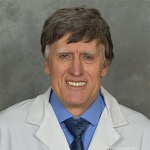Professor, Cellular and Molecular Biology
Phone: 903.877.5183
Email: andrey.komissarov@uttyler.edu
Department: Cellular and Molecular Biology
Popular Searches

Professor, Cellular and Molecular Biology
Phone: 903.877.5183
Email: andrey.komissarov@uttyler.edu
Department: Cellular and Molecular Biology
Dr. Komissarov earned both his MS and PhD degree at the Lomonosov Moscow State University and was an Assistant Professor in the Chemistry Department. His research and teaching activities at Moscow State University were focused on the mechanisms of enzymatic reactions and the use of radioactive tags in chemistry and biology. After over a decade at Moscow State University he joined the Institute for Genetics and Selection of Industrial Microorganisms—now a part of the Federal Kurchatov Center— as a Senior Scientist, where he applied his understanding of enzymes to developing novel anti-cancer therapeutics. After moving to the United States, he continued his research at the University of Missouri, Columbia; HFHS, Detroit; and Portland State University. He joined the University of Texas at Tyler Health Science Center in 2007.
Dr. Komissarov brings to the health science center his extensive research experience and teaching skills, as well as a thorough understanding of the enzymes and the inhibitors that control the fibrinolytic system. His focus on understanding the molecular interactions in fibrinolysis resulted in the identification of a serpin, Plasminogen Activator Inhibitor 1 (PAI-1) as a molecular target in the therapy of pleural injury. PAI-1 neutralization results in an up to 8-fold increase in the efficacy of fibrinolytic therapy in animal models. His current research is focused on furthering our understanding of the mechanisms of fibrinolysis and the development of novel inhibitors of PAI-1 as well as approaches to improve therapeutic outcomes. A prototype (FPA96F) of a novel Point of Care (POC) diagnostic test– the Fibrinolytic Potential Assay (FPA, US Patent #10175255)— a companion bedside test to personalize therapy of empyema was tested and validated in an animal model and human samples of pleural fluid. Currently, Dr. Komissarov is working on adapting a FPA96F prototype test to rural hospitals’ settings. Other Projects Include (i) characterization of effects of nanobodies and phage display selected peptides on plasminogen activation and fibrinolysis; (ii) use of imaging modalities and nanocarriers (liposomal and “molecular cage” type) to improve fibrinolysis; (iii) evaluating the effect of ligands of different nature incorporated into fibrin on the rate of fibrinolysis; (iv) determining the role of inhibition of the fibrinolytic system in lung injury caused by mustard gas or industrial alkylating agents; (v) studying perfluorcarbons as potential carriers for the delivery of fibrinolytic drugs to smoke injured lungs; (vi) analyzing molecular signatures in human and animal samples. Biotechnology projects are focused on development, formulation, characterization and stabilization of novel therapeutics. Dr. Komissarov has co-authored almost 60 publications in peer-reviewed journals and has 25 presentations over the last 2 years.
Dr. Komissarov teaches multiple classes and labs in the Biotechnology Master’s program. He mentors summer interns and volunteers and also visits Tyler Classical Academy to present a Career Choice Talk. His teaching philosophy focuses on providing mentorship, early opportunities for personal development and professional advancement, and providing age- and training-appropriate research experiences for young future scientists. The range spans from K-12 through undergraduate, graduate, and post-graduate levels. Every year his mentees win scholarships, and travel grants to participate in international and local meetings with posters and oral presentations. His hobbies include traveling, skiing, photography, and protein chemistry in the kitchen. He enjoys running with students— from a 5K to a Half Marathon distance.
Education and Training
Moscow State University, Moscow, USSR
MS, Chemistry, 1980
Moscow State University, Moscow, USSR
PhD, Chemistry of Natural Compounds, 1988
Courses Taught
Biotechnology Master Program at UTHSCT, team lecturer
BIOT 5221, Proteins and Nucleic Acids
BIOT 5222, Advanced Metabolism
BIOT 5222L, Advanced Metabolism (lab)
BIOT 5310, Fundamentals of Biomedical Research
BIOT 6312, Advanced Techniques in Protein Chemistry
BIOT 6312L, Advanced Techniques in Protein Chemistry (lab)
BIOT 5211, Advanced Biotechniques
BIOT 5211L, Advanced Biotechniques (lab)
BIOT 5331, Advanced Graduate Studies I
BIOT 5332, Advanced Graduate Studies II
BIOT 6331, Thesis Research
BIOT 6332, Thesis Writing
BIOT 5132, Critical Reading
Graduate Students’ Mentor and Thesis Committee Member.
Research Interests
Molecular Interactions of Fibrinolysis (MIF) - “From Bench to Bedside and Back”.
Use Precise Molecular Targeting to Increase the Efficacy of Therapy. Testing Two Targets
Concept in Chronic Empyema Model.
Evolving of Novel Diagnostic Fibrinolytic Potential Assay (FPA96F) into a Point of
Care (POC) Test to Personalize Fibrinolytic Therapy.
Selection, Evaluation the Mechanisms of Modulation of Serpin Activity by Nanobodies
and Phage Display Derived Peptides.
Employing Liposomal Nanoparticles and Molecular Cage Type Complexes for Precise Delivery
of Therapeutics.
Study Effects of Ultrasonography, and Computer Tomography on Fibrinolysis and Fibrin
Structure in vitro and in vivo.
Study of Molecular Signatures in Samples from Animal Models and Humans to Improve
Diagnostics and Therapeutic Strategies with Novel Biomarkers and Molecular Targets.
Publication Highlights